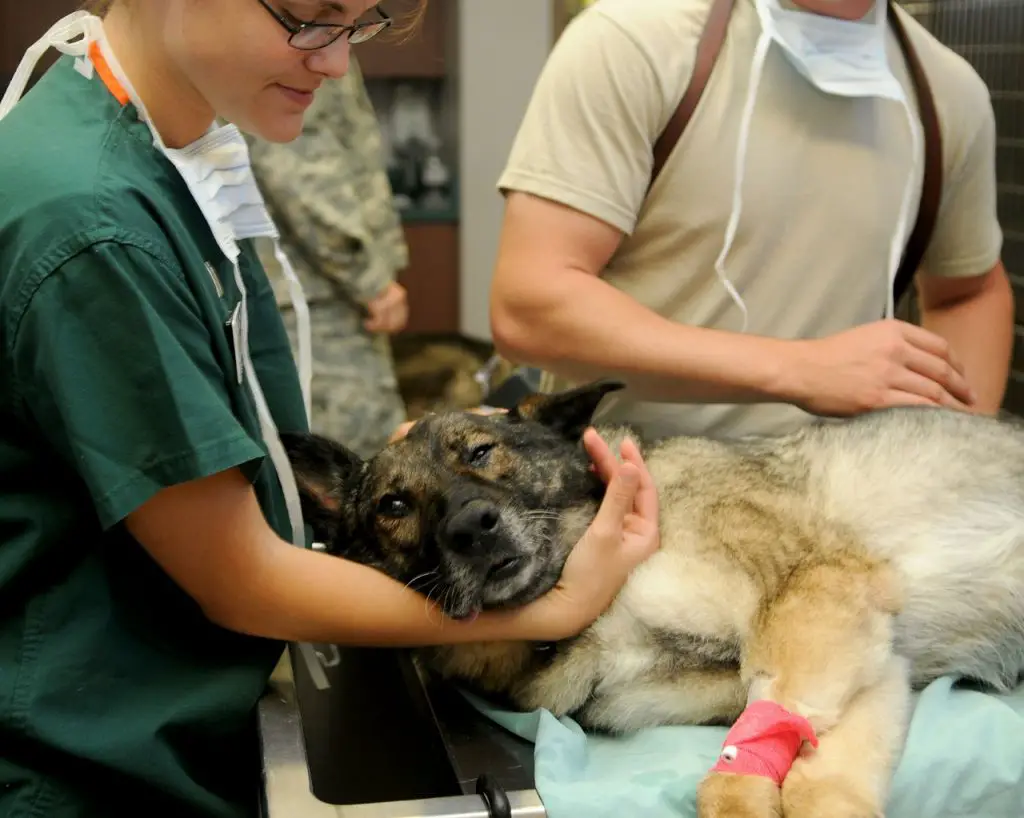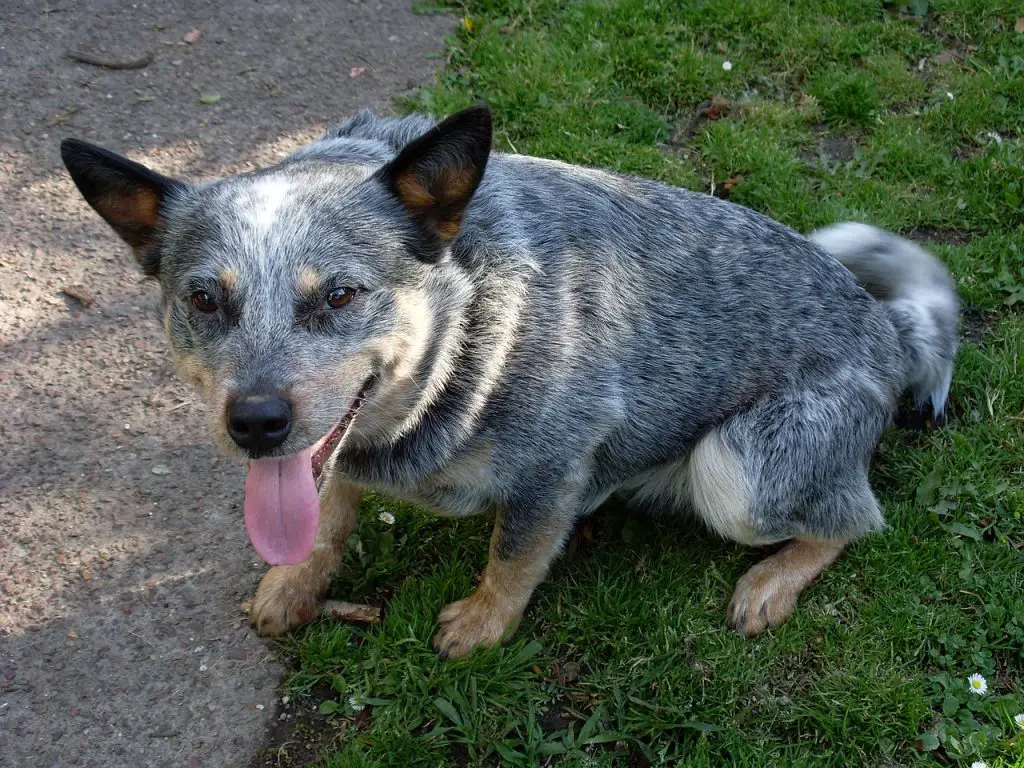Table of Contents
If you have a dog that is starting to go into its twilight years, chances are you know the worry of the possibility of kidney disease. Some breeds of dog are more prone to it than others, but no pet owner would ever want to lose their dog to such a difficult and painful condition. Kidney disease is certainly a serious issue when it comes to dog health – one that requires immediate medical attention and supervision. You want to make sure they are getting treatment the entire time so that they can live out the rest of their lives comfortably, or so that they can perhaps even live longer. But can a dog recover from acute kidney failure, or is it fatal? Well, it truly depends on the situation and the condition of your dog.
In most cases, kidney failure is serious and possibly even deadly. Without immediate medical intervention, you will find that kidney disease can progress into something irreversible and fatal to your beloved pet. This is basically why it’s important for you as a dog owner to learn as much as you can about kidney diseases and what you can and can do about them. It’s also important to regularly get your dog tested and checked if their breed is prone to kidney issues.
Today, our mission is to learn everything that there is to learn about kidney disease and kidney failure. That way, we can answer the question “can a dog recover from acute kidney failure” later on down the line. Are you ready? Cause we are – let’s go.
What Do the Kidneys Do?

Regardless if it’s in humans or in animals, kidneys are still 100% vital. For dogs, kidneys are found in the middle abdomen, close to their backs. It’s actually very closely similar to where the human kidneys are located. Kidneys are connected to a blood vessel network that is extensive, and also connected to the vital organs. Kidneys are pretty complicated, both in humans and in animals – they do many different things and serve many functions. Kidneys basically maintain PH balance and electrolyte balance in our blood. They also filter out the waste and produce the urine afterwards. The waste is then excreted through the urine.
Also, the kidneys that produce the enzymes in the hormones which help to regulate different functions in our bodies. the kidneys and the heart work together in unison to keep the body operating completely and functioning properly. Just like us humans, dogs will die if their kidneys fail. However, just like us, they can also function on just one kidney.
Acute Kidney Failure – What Happens?
So now the question is – what is acute kidney failure? What happens when it occurs? Well, acute kidney failure, or acute “renal” failure (both mean the same thing), is when the kidneys fail in a dog that is actually otherwise healthy. It progresses over a period of a few days, where a dog can be normal one day and severely, deathly sick in the next few.
Acute kidney failure is usually caused by exposure to toxic things. Usually it is caused by things such as: antifreeze, plants that are poisonous, certain nuts, painkillers (for humans), and even rat poison. Another cause of kidney failure is a kidney infection that has not been treated. UTIs (urinary tract infections) basically can turn into kidney infections, that can then turn into kidney failure if untreated.
One more thing that can cause acute kidney failure is a decrease in the blood flow or the oxygen that is delivered to the kidneys. It can happen from things such as heat stroke, severe dehydration, and even trauma. Some dogs have a natural predisposition to kidney problems as well.
With regards to the question “can a dog recover from acute kidney failure”… well, they can. But the simple truth is, many of these dogs will likely not survive several days. However, if the pup manages to make it through a few days with supportive meds and fluid therapy (IV), it is possible for them to survive. This probability of survival increases further if the veterinarians are treating the underlying cause.
Chronic Kidney Issues and Diseases

Chronic Kidney Diseases, sometimes also named chronic kidney failure, occurs when the kidney is affected by degenerative changes which can then affect the ability of the organs to properly function. CKD occurs most commonly in dogs that are entering their aged years, but it usually occurs gradually. As the kidneys worsen over time, the dog can eventually no longer recover.
Unfortunately, CKD is uncurable in dogs. Therefore, a dog with chronic kidney disease basically has a “death sentence” if you will – it is a terminal condition that can only be managed by medications. Quality of life and survival time can be extended by several years, however, which is certainly something that is a relief to many pet owners. However, that still doesn’t change the answers to the question “can a dog recover from acute kidney disease”.
What Are the Signs That My Dog Has Kidney Disease?
As a dog owner, it is a good idea for you to learn what the signs of acute kidney failure alright . Furthermore, you also should know what the signs of chronic kidney disease or so that you can immediately seek medical attention for your dog in case you begin noticing some symptoms. Acute kidney failure basically occurs very quickly, happening within a few days which is why it is incredibly important to take your dog to the vet as soon as you notice these signs. However, chronic kidney conditions can develop over a long period of time – months, or even years. Here are some of the early signs of kidney disease the dogs usually get:
- Increased thirstiness
- Lethargy
- Frequent Urination
- Appetite Loss
- Vomiting
- Nausea
- Diarrhea
- Weight Loss – more common in chronic kidney diseases
As the kidney diseases progress, and as more toxins continue to build up in your dog’s blood stream, the signs that you notice above will begin to get worse. On top of those symptoms above, you may also see the following below:
- High blood pressure
- Dehydration
- Ulcers
- Urine is decreased in terms of output amount
- A difficulty or inability when it comes to regulating body temperature
- Seizures
- Anemia
Dogs that develop acute kidney failure can experience the above signs. These signs can worsen very quickly over a few days. In CKD, these signs and symptoms will get worse progressively over a period of a few months or even a few years – depending of course on whether the dog is getting treatment and how they’re responding to it.
How Do I Get Kidney Disease Diagnosed?
If you start noticing the above signs in your beloved pup, it’s time to bring them to the vet. But how exactly is kidney disease diagnosed? Well, we want to make it an important point that the signs above don’t show up until the kidney condition has started progressing to a degree. It is for this reason that you must really bring your pet to the vet regularly for routine examinations. This way, the vet can do regular screening and lab work to check for any signs of kidney diseases developing in your pet. It is this regular screening that allows the vet to detect any risk factors or changes to the dog’s health. That way, before kidney disease progresses, treatment can already begin.
Who needs to answer the question “can a dog recover from acute kidney failure” if you simply do your best to prevent it in the first place?
However, in the case of acute kidney failure, the symptoms may come on suddenly – which is why if you notice them you need to bring your dog to the vet immediately. The vet will ask you questions and perform a physical exam on your dog. Next, they’ll likely require lab work to be done.
Common Lab Tests for Kidney Disease Diagnosis
- CBC – CBC or complete blood count evaluates the red blood cells and white blood cells. Abnormalities and evidence of infection and anemia are detected through this test.
- BCP – Blood Chemistry Panels are tests that measure the components in blood that basically show how well the body’s vital organs are working. For the kidney, BUN (blood urea nitrogen) as well as creatinine are the components checked.
- Blood Electrolytes – This test basically measures the levels of electrolytes found in the blood. If they are balanced, everything is normal, and if they are imbalanced, the kidneys are not functioning ideally.
- Urinalysis – This test evaluates the contents of the urine. The test checks the concentration of the urine, measures proteins found in the pee, and looks for any evidence of infections or other diseases.
When these tests are done, their results can basically give your pet’s vet enough data to diagnose any possible kidney conditions. If your pet is diagnosed with a kidney condition, further tests may be done to determine underlying cause. Otherwise, the vet may immediately put your dog on a course of treatment.
If your pet has chronic kidney disease, tests will be done regularly, at intervals of a few weeks or a few months (depending entirely on how your pet is doing). The lab results will then dictate how the treatments go.
How to Treat Kidney Disease in Dogs

Once kidney disease is diagnosed, a treatment course is immediately given. Especially in the case of acute kidney failure. Can a dog recover from acute kidney failure? Yes – but treatment must be conducted as soon as possible – then it will completely depend on whether the dog responds well to treatment. Here are some of the treatments that are done for kidney disease:
Fluid Therapy
This treatment is basically the foundation of KD treatments. IV or intravenous fluid diuresis is absolutely important for treating acute kidney failure. This is also something that can be done when CKD is diagnosed (it depends on the condition of your pooch as well as the lab results of course). Fluids are administered via IV catheter in a rate high/fast enough to help flush the body of toxins. However, the rate must not be too high so as to cause any negative impact to the dog’s heart. IV diuresis is usually done over a period of a few days, where the dog is often admitted to the hospital.
At home, subcutaneous fluids are given as maintenance by the dog owners. This is done either daily or at least a few times each week, depending on the dog’s kidney condition. As a dog owner, it’s likely that this might sound scary to you. But the fact is it’s actually rather easy to do – your vet will show you how.
Diets
CKD is often managed through a specialized diet as well. Adjusting the diet in a certain way can lower the burden the kidneys are under. Diets for this purpose are basically low in phosphorous, protein, sodium, and calcium. The food may, as a result, not be too palatable to the dog. However, there are many different brands that you can try. You can also make homemade food.
Supplements and Medicines
Meds and supplements are often used to treat kidney diseases. The phosphorous absorption of the body can be decreased by giving the dog phosphate binders. As a result, the kidneys are under much less of a burden. Antacids are also given to the dog to help with reducing any excess acid that the stomach produces due to the pH not being properly regulated by the kidneys. Nausea and vomiting is resolved by antiemetics, which can also help with improving the dog’s appetite. ACE inhibitos are given to control the loss of protein on top of also helping to regulate blood pressure. If necessary, other blood pressure meds may be given as well.
Vitamins and supplements are then recommended if your vet deems them necessary for your dog’s health.
Dialysis
Dialysis is a treatment well known for kidney failure. It is more often used for humans and not for dogs, because it is scarcer and more expensive for dogs. A machine is basically used to filter the blood, but this treatment is often only available in larger hospitals that have this specialty. Dogs that suffer from acute kidney failure often benefit the most from this treatment, if it’s available that is.
Kidney Transplants
In most cases, kidney transplants are not available for dogs – this treatment is extremely rare, expensive, and risky. It’s only performed by a select few vet surgeons, and finding a donated kidney is extremely difficult.
Can a Dog Recover from Acute Kidney Failure?
This is most definitely a question that we have now answered throughout all of the information we’ve talked about today. Can a dog recover from acute kidney failure? Certainly – but probabilities are low. And chances are, if your dog suffers from acute kidney failure, you need to get them to the vet for immediate treatment. The longer your pup goes without treatment, the less chance they have to recover.
Conclusion
Both Chronic Kidney Disease and Acute Kidney Failure are difficult things to overcome for your pup. In both cases, you want to do the best you possibly can to keep them comfortable and to treat the underlying conditions present. Just do what you can for your pooch and remember to take them immediately to the veterinarian if you notice any signs. Can a dog recover from acute kidney failure? Yes – as long as you get them treated fast enough!
